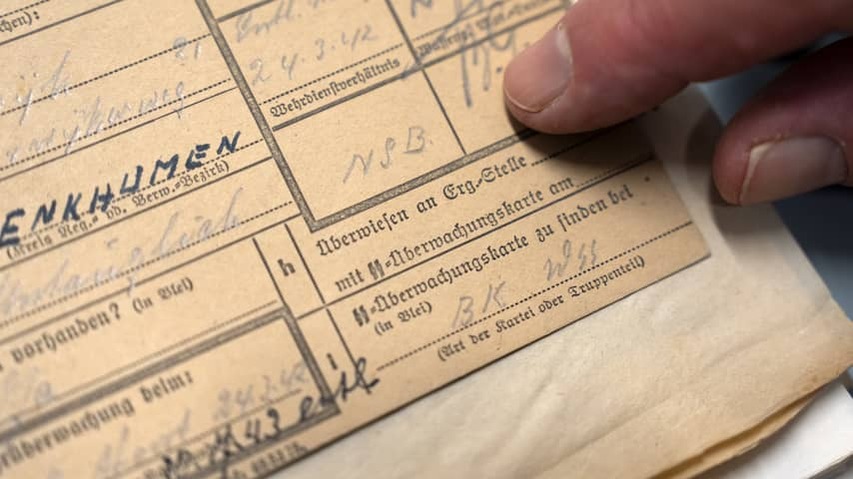
The war archive in The Hague will be digitally searchable from July 1st. This archive contains personal data of people who were investigated for collaboration after the Second World War. Privacy rules apply, but Education Minister Eppo Bruins does not want to control visitors.
It concerns the project ‘War before the Judge’, which contains about 425,000 names. The names all appear in the Central Archive Special Jurisdiction (CABR). The archive was supposed to be digitized earlier, but that was postponed because the Dutch Data Protection Authority (AP) was concerned about the privacy of relatives.
Minister Bruins therefore introduced a temporary regulation, whereby people could only view the paper archive in a study room. This is now changing. On June 23, a week before the opening, interested parties can reserve a spot behind one of the five available computers on the website of the National Archive.
To protect the privacy of possibly still living people who are in the files, the archive has taken measures, writes the Central Government. For example, visitors who discover documents that should not be shown can indicate this. For example, if it concerns photos with portrait rights or personal letters.
But the minister does not adopt all the advice of the AP. For example, he does not want to control the search behavior of visitors. He considers it a violation of privacy to monitor, record and control the search behavior of visitors who are researching the fate of their family or conducting research from a scientific perspective.
Bruins’ bill goes ‘too far’
According to Bruins, it is “of great importance” that the war archive is digitized. “Only by digitizing the archive and making it fully searchable is it possible, for example, for relatives of victims or neighbors of people who provided shelter to search in the archive.”
“They can search for the first time for the names of victims or places. That opens up new possibilities after eighty years to be able to find out what the fate was of family or other loved ones in the war years.”
Bruins therefore speaks of a “temporary emergency solution”. The minister has submitted a bill to amend the Archives Act. He wants the CABR to be made fully public, allowing people to view the lists of names at home.
According to the watchdog, that proposal goes too far. If Bruins pushes the proposal through as it looks now, parts are expected to “have to be disapplied” because they conflict with higher law such as European privacy rules.
The war archive may also contain names of people who are still alive. Making such data publicly searchable online is, according to the AP, “generally unacceptable.”